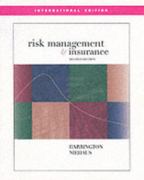

8. The effects of property rights on achieving efficiency Consider a river found in the city of Philadelphia, and then answer the questions that follow. The city has a hiking lodge whose visitors use the river for recreation. The city also has a chemical plant that dumps industrial waste into the river. This pollutes the river and makes it a less desirable vacation destination. That is, the chemical plant's waste decreases the hiking lodge's economic profit. Suppose that the chemical plant could use a different production method that involves recycling water. This would reduce the pollution in the river to levels safe for recreation, and the hiking lodge would no longer be affected. If the chemical plant uses the recycling method, then the chemical plant's economic profit is $1,500 per week, and the hiking lodge's economic prot is $1,800 per week. If the chemical plant does not use the recycling method, then the chemical plant's economic prot is $2,000 per week, and the hiking lodge's economic profit is $1,000 per week. These figures are summarized in the following table. Complete the following table by computing the total prot (the chemical plant's economic prot and the hiking lodge '5 economic prot combined) with and without recycling. Profit Chemical Plant Hiking Lodge Total Action (Dollars) (Dollars) (Dollars) No Recycling 2,000 1,000 Recycling 1,500 1,800 Total economic prot is highest when the recycling production method is v . When the chemical plant uses the recycling method, the hiking lodge earns $1,800 $1,000 = $800 more per week than it does with no recycling. Therefore, the hiking lodge should be willing to pay up to $800 per week for the chemical plant to recycle water. However, the recycling method decreases the chemical plant's economic prot by $2,000 $1,500 = $500 per week. Therefore, the chemical plant should be willing to use the recycling method if it is compensated with at least $500 per week. Suppose the hiking lodge has the property rights to the river. That is, the hiking lodge has the right to a clean (unpolluted) river. In this case, assuming the two firms can bargain at no cost, the chemical plant will v the recycling method and will pay the hiking lodge V per week. Now, suppose the chemical plant has the property rights to the river, including the right to pollute it. In this case, assuming the two rms can bargain at no cost, the chemical plant will v the recycling method, and the hiking lodge will pay the chemical plant V per week. The chemical plant will make the most economic profit when True or False: The river will remain polluted, regardless of who has the property rights. True False











